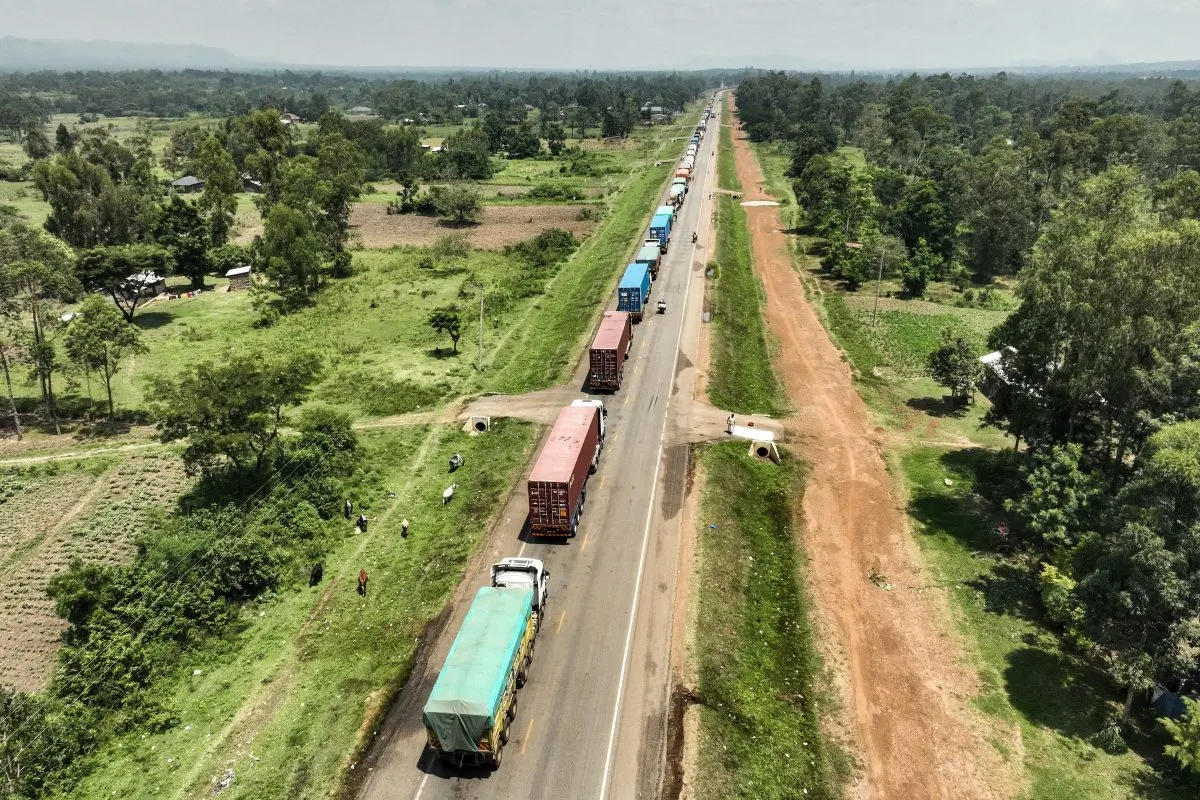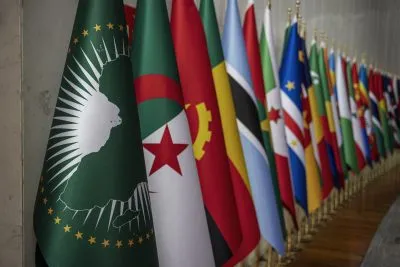Last year the African Development Bank (AfDB) released a report analysing Africa’s “trade finance gap”. This refers to the financial tools, such as letters of credit or guarantees, which businesses need to conduct cross-border trade – but which companies in Africa often struggle to access.
Trade finance is essential – both for small and medium enterprises (SMEs) and larger companies – to reduce the risks associated with international trade, improve cash flow and ensure that imports and exports are conducted in a smooth way. According to the AfDB, around 80% of all international trade globally depends on some form of trade financing.
However, there is a massive shortfall – a shortfall which stifles companies’ ability to trade and therefore, in turn, dents economic growth. In 2022, the global trade finance gap stood at $2.5 trillion – an increase of 47% from 2020. In Africa alone, the deficit was over $80bn in 2019.
Teetering tariff trouble
There are reasons to suspect the trade finance gap could grow even larger on the continent. This is as a consequence of US President Donald Trump’s decision to impose a universal 10% tariff on almost all countries, and the potential that he will reimpose higher “reciprocal” tariffs on African countries with which he claims the United States has a large trade deficit, following a 90-day pause.
Trade restrictions mean African countries are likely to export fewer goods to the US, which would lead to less hard foreign currency coming into African economies.
As a result, the US dollar liquidity which is required to facilitate trade finance would be diminished – further limiting banks’ ability to provide the products and services businesses need to conduct trade successfully.
It is in this context that the UK’s development finance institution, British International Investment (BII), has partnered with Ghana International Bank (GHIB) in a bid to start plugging the trade finance gap in seven African frontier markets.
BII and GHIB recently announced a $50m trade finance facility that will expand access to credit for SMEs in Sierra Leone, Liberia, The Gambia, Benin, Democratic Republic of the Congo, Rwanda, and Tanzania. The initiative aims to ensure that businesses in these markets are able to trade seamlessly with international partners, stabilising supply chains and promoting stronger economic growth.
An Africa investment accelerator
The trade facility with GHIB is aligned with BII’s Africa Resilience Investment Accelerator (ARIA) initiative, which aims to unlock investment in frontier markets that are currently underserved not only by commercial banks, but also development finance institutions.
David Banson, investment manager at BII, tells African Business that they were motivated to launch this initiative as “we think the trade finance gap is probably the biggest inhibitor to Africa’s growth.”
“SMEs provide a very broad base for economies to grow – they are the bedrock of economies and account for 80% of jobs in Africa,” he says. “But they need to thrive in an environment where there is access to credit, there is access to the global economy, and, most importantly, where trade is not inhibited.”
“If you have a trade finance gap, then it means you do not have all the facilities that allow trade to happen,” Banson adds. “This trade finance gap that we are looking at reflects the amount of inhibition there is for economies in Africa to grow.”
Richard Agbenu, chief commercial officer at GHIB, notes that the partnership with BII is vital as private sector banks simply do not have the capacity – or the balance sheet – to fill the trade finance gap alone.
“In international trade, every transaction is different – and therefore trade finance products need to be bespoke. Because of this, it is very time-consuming,” he explains.
“You need to have knowledge of the various products involved in the trade, which takes time and resources. In a typical trade finance transaction, you need to ask for collateral, which then requires inspectors to verify this collateral. You have regulatory considerations to think about as well. For banks to be comfortable processing a transaction, all these things need to be in place.”
“For most banks, there is therefore an opportunity cost in dealing with trade finance,” Agbenu says. “Do we have the time to invest in this when we can just buy government paper and make nice returns? For the trade finance gap to be closed, there needs to be a deliberate effort and banks need to be incentivised.”
BII hopes that the $50m trade facility will ensure that GHIB has sufficient liquidity to offer trade finance products – while also freeing up the time and resources the bank needs to offer such services. Agbenu explains that “with the support of BII, we can distribute our risk, while the trade facility gives us greater leverage to deploy more capital.”
Fanning out into frontier markets
Banson says they chose to partner with GHIB – which is, like BII, headquartered in London – as it is a systemically important bank in the seven markets targeted under this initiative. He adds that it was essential for a development institution such as BII to get involved as regulatory obstacles make it very difficult for commercial banks to offer trade finance in frontier markets, which are perceived to be higher risk. “International confirming banks, because of the regulations that they have to deal with, are limited in their ability to offer services in countries such as Sierra Leone, if they have any capacity at all,” Banson tells African Business.
“Regulations instruct confirming banks to model risk in Africa in a certain way, and these models mean there is a limit to what these banks can do in African markets. Africa bears the brunt of these global regulations.”
“Because of the limits these regulations impose on these banks, the only way to make progress is through development finance institutions,” Banson says. “We are not a commercial bank and are not bound by the same restrictions. Global regulations have created a need for development finance institutions to support commercial banks so they can offer trade finance in our target markets.”
A survey in 2022 by the International Finance Corporation (IFC) found that in Côte d’Ivoire, Ghana, Nigeria, and Senegal trade finance supports only 25% of trade in goods. This was significantly below both the African average of 40% and the global average of between 60% and 80%.
Agbenu says that “if this is the number for the big West African countries, the number for much smaller countries like Liberia, Sierra Leone, The Gambia, and Guinea are likely even worse – possibly as low as 10% to 15%.”
While it is difficult to forecast precise numbers, BII and GHIB aim to start significantly increasing the amount of business being supported by trade finance across these frontier markets. Strong growth is certainly feasible: Agbenu points out that, with the support of BII and other partners, GHIB was able to grow its trade finance volumes by 100% last year.
A model for commercial banks
Both Banson and Agbenu also note that BII and GHIB’s work enhancing access to trade finance in these markets will ideally serve as a model for other commercial banks as to how they can offer such services in African markets.
Agbenu says “with BII joining us to do this, it gives other lenders comfort – it gives “visibility” for trade finance and will help promote it in the region.”
Trade finance is vital in giving businesses the leverage they need to conduct international trade, expand their operations, create more jobs, and promote stronger economic growth.
Banson notes that “if trade finance is helping manufacturing companies import raw materials, for instance, you are not just enabling that manufacturing entity to be able to continue manufacturing.
“You are helping it to grow. And by growing, it will employ more people, and by employing more people, it will then be able to do more. That creates a virtuous cycle across the economy.”
Want to continue reading? Subscribe today.
You've read all your free articles for this month! Subscribe now to enjoy full access to our content.
Digital Monthly
£8.00 / month
Receive full unlimited access to our articles, opinions, podcasts and more.
Digital Yearly
£70.00 / year
Our best value offer - save £26 and gain access to all of our digital content for an entire year!

 Sign in with Google
Sign in with Google 



